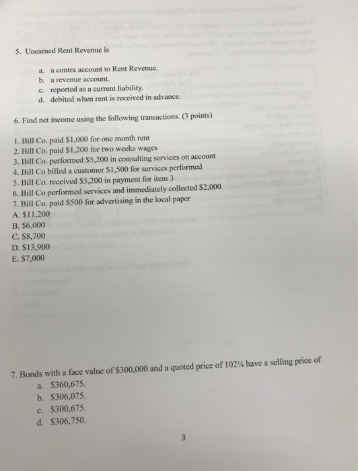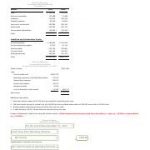
Moreover, once the algorithm is deployed, all the functions operate automatically without manual support. However, even with technological development, there has yet to be much advancement in accounting. For more information and to stay updated on Bitwave’s support for the Stellar ecosystem, https://www.personal-accounting.org/provision-accounting/ please visit bitwave.io or fill out this form to stay connected. Third-party involvement will expose businesses to new risks, but also potentially reduce workloads and lead to more reliable bookkeeping. In 2024 and beyond, accountants are going to meet a lot of new challenges.

1 Implications for academics
This decentralisation prevents any single party from dominating or corrupting the data, making the system more secure and fair. Accountants will not need to be engineers with detailed knowledge of how blockchain works. But they will need to know how to advise on blockchain adoption and consider the impact of blockchain on their businesses and clients. They also need to be able to act as the bridge, having informed conversations with both technologists and business stakeholders.
Factors affecting digital technology access in vocational education
Researchers should analyse how blockchain ecosystems evolve and are applied (Benjaafar et al., 2018). Blockchain enables real-time, verifiable and transparent accounting, making it reasonable to assume that accounting information systems will become ecosystems. In a data ecosystem that progressively integrates a nearly infinite set of initially disconnected data, the ability to integrate coherently and apply software agents will be of high importance.
Corporate Finance
They promptly launch this research stream with in-depth analysis focusing on applications such as triple-entry systems and automated auditing networks. Finally, considering countries’ interest and collaboration, the USA has the highest level of collaboration globally, followed by Australia. Second, in the field of auditing, starting from Dai et al.’s (2019) and Rozario and Vasarhelyi’s (2018) premises, how much to pay yourself more research efforts should be made to define how to audit activities integrated into a blockchain system. Such research will be even more impressive when comparing different accounting systems. Besides, interesting RQs will investigate how auditors will manage all stakeholders and how audit activities will evolve. The distribution of the 93 items of the sample does not show significant concentration.

The explosion of contributions starting in 2017 has an annual growth rate of 89.88%; the data justify the in-depth analysis of the literature, which is continually expanding and progressing the stream of knowledge over time (Bonsón and Bednárová, 2019). (2018), “Auditing with smart contracts”, The International Journal of Digital Accounting Research, Vol. Van Hoek (2019) notes that a need for transparency and visibility motivates blockchain implementation and that the main barrier facing such an implementation is a lack of understanding of how to integrate and leverage blockchain investments.
Blockchain Accounting: The Evolution of Financial Transparency
Blockchain education may become key to the training of accountants, with those accountants who understand blockchain most likely to succeed in a blockchain-recorded world. Every new transaction is added to a new block, and then each new block is added to the system. The blockchain software updates across every single computer, or “node,” so that everyone’s ledger has a record of everyone’s transactions in perpetuity. It also records every transaction that passes through a computer, and, just like with double-entry bookkeeping, it does so in chronological order.
Walmart and others have already implemented beta blockchains in their supply chain. In summary, this study underscores the importance of considering managerial and social implications when integrating blockchain into accounting education. By addressing key factors influencing adoption and providing support to faculty members, institutions can harness the transformative potential of blockchain technology, shaping both the future of the accounting profession and broader societal perceptions of emerging technologies. Davide Calandra is a PhD candidate in Business and Management at the University of Turin (Italy) ‐ Department of Management.

Expanding future studies to include other adoption theories could provide a broader perspective. Fourth, the COVID-19 pandemic impacted the ability to conduct in-person interviews, which could have offered a more in-depth evaluation. Furthermore, the study did not examine the impact of demographic factors such as expertise and education level, as well as other https://www.business-accounting.net/ moderators like social influence. Further research should explore the significance of these variables in the acceptance of blockchain in accounting education. In light of these insights, it becomes evident that fostering a robust culture of organizational support is paramount for realizing the full potential of blockchain technology in accounting education.
- Immutability is a desirable feature for accounting systems because it prevents manipulation, but the way that blockchain achieves this goal is subject to criticism.
- Third, our study contributes to the accounting literature with a discussion of the potential future research trends related to blockchain for accounting.
- For example, researchers could focus on the applications and evolution of accountability and transparency, considering financial reporting.
“This collaboration with Bitwave enhances the transparency of on-chain financial reporting, making it easier for startups and enterprises to innovate with confidence. Bitwave’s financial compliance and reporting tools empower our community with a new level of efficiency for digital assets. We’re thrilled to work together to foster an inclusive, accessible, and forward-thinking financial ecosystem.”
Blockchain will only become a “game-changer” if all parties involved in the accounting ecosystem are open to its potential. The adoption of blockchain technology along with artificial intelligence technologies and, more specifically, machine learning is happening at a fast rate. Blockchain accounting is in its early stages to predict the exact impact on the accounting industry.
This paper provides a structured literature review of blockchain in accounting. The authors identify current trends, analyse and critique the key topics of research and discuss the future of this nascent field of inquiry. At Deloitte, our people work globally with clients, regulators, and policymakers to understand how blockchain and digital assets are changing the face of business and government today. New ecosystems are developing blockchain-based infrastructure and solutions to create innovative business models and disrupt traditional ones. This is occurring in virtually every industry and in most jurisdictions globally.